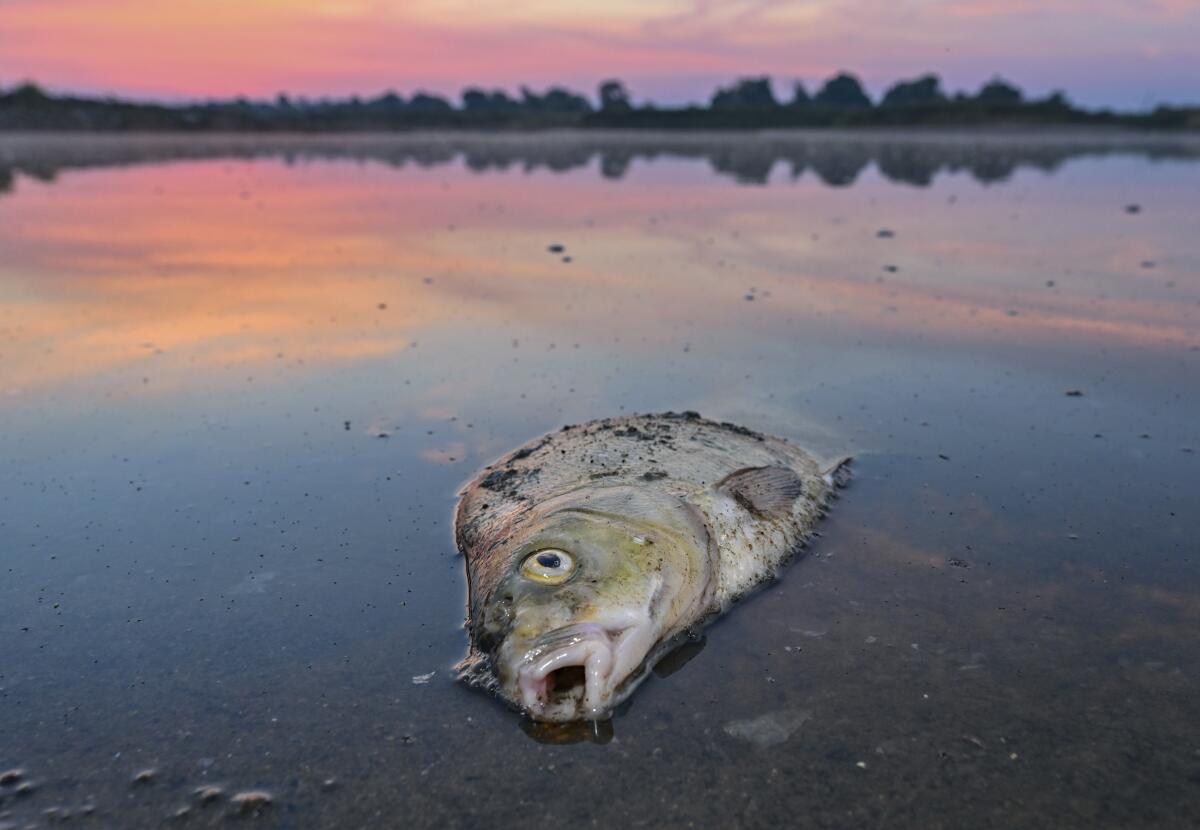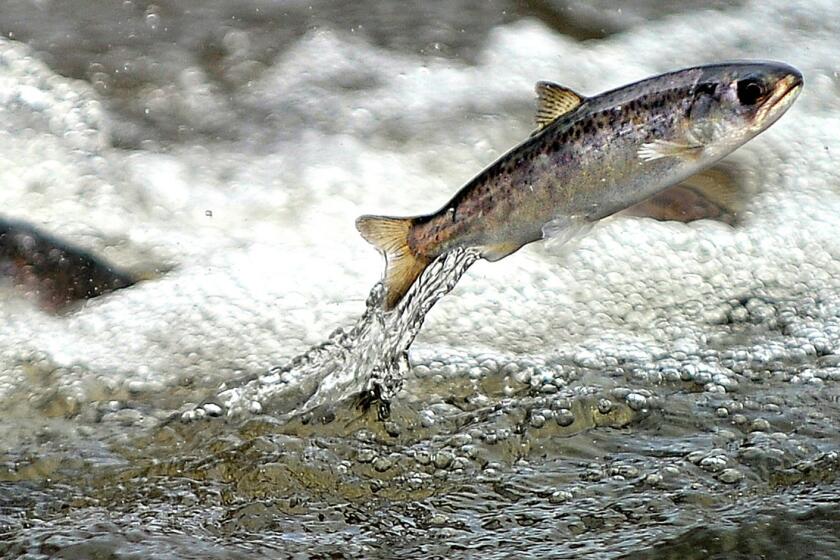No single cause for massive fish die-off in German river, officials say

BERLIN â Several substances seem to have contributed to the massive fish die-off in Germanyâs Oder River, which forms much of the countryâs border with Poland, a German official said Monday.
Numerous theories have been floated as to the cause of the environmental disaster, but so far none has been conclusive, a spokesman for Germanyâs Environment Ministry said. He rejected suggestions from a senior Polish official that Germany was spreading âfake newsâ about pesticides being behind the environmental disaster.
âThe search for the causes of the fish die-off in the Oder still hasnât been completed,â said Andreas Kuebler, the ministry spokesman. âSo far we have several organic and inorganic substances that could be responsible.
âIt seems to be a cocktail of chemicals,â Kuebler told reporters in Berlin. âAccording to our information so far, none of these substances alone led to the fish die-off. It must still be assumed that this could be a multi-causal incident.â
Kuebler said a type of algae that normally grows in brackish water and produces a substance toxic to fish may also have played a role in the disaster. Recent lab results showed a sharp growth of Prymnesium parvum in the Oder that could only have resulted from increased salt levels caused by an âindustrial discharge,â he said.
Ten tons of dead fish have been removed from the river.
The fish, which died of chlorine exposure, included green and white sturgeon and chinook salmon that were being studied at the facility.
Dead fish in the Oder were first noticed by fishermen in southwestern Poland in late July, but German authorities said they werenât officially notified by their Polish counterparts until the second week of August. Polandâs government is trying to track down those responsible.
Warsaw lashed out over the weekend, with Polish Environment Minister Anna Moskwa accusing Germany of spreading âfake newsâ about the levels of pesticides in the river.
âIn Poland, the substance is tested and detected below the quantification threshold, that is, it has no effect on fish and other species,â she wrote on Twitter.
Kuebler said Germany was âsurprised and a bit saddenedâ by the claim.
âWe never said that the Polish side is responsible for the the use of pesticides [and] that fish died of this,â he said.
More to Read
Sign up for Essential California
The most important California stories and recommendations in your inbox every morning.
You may occasionally receive promotional content from the Los Angeles Times.











